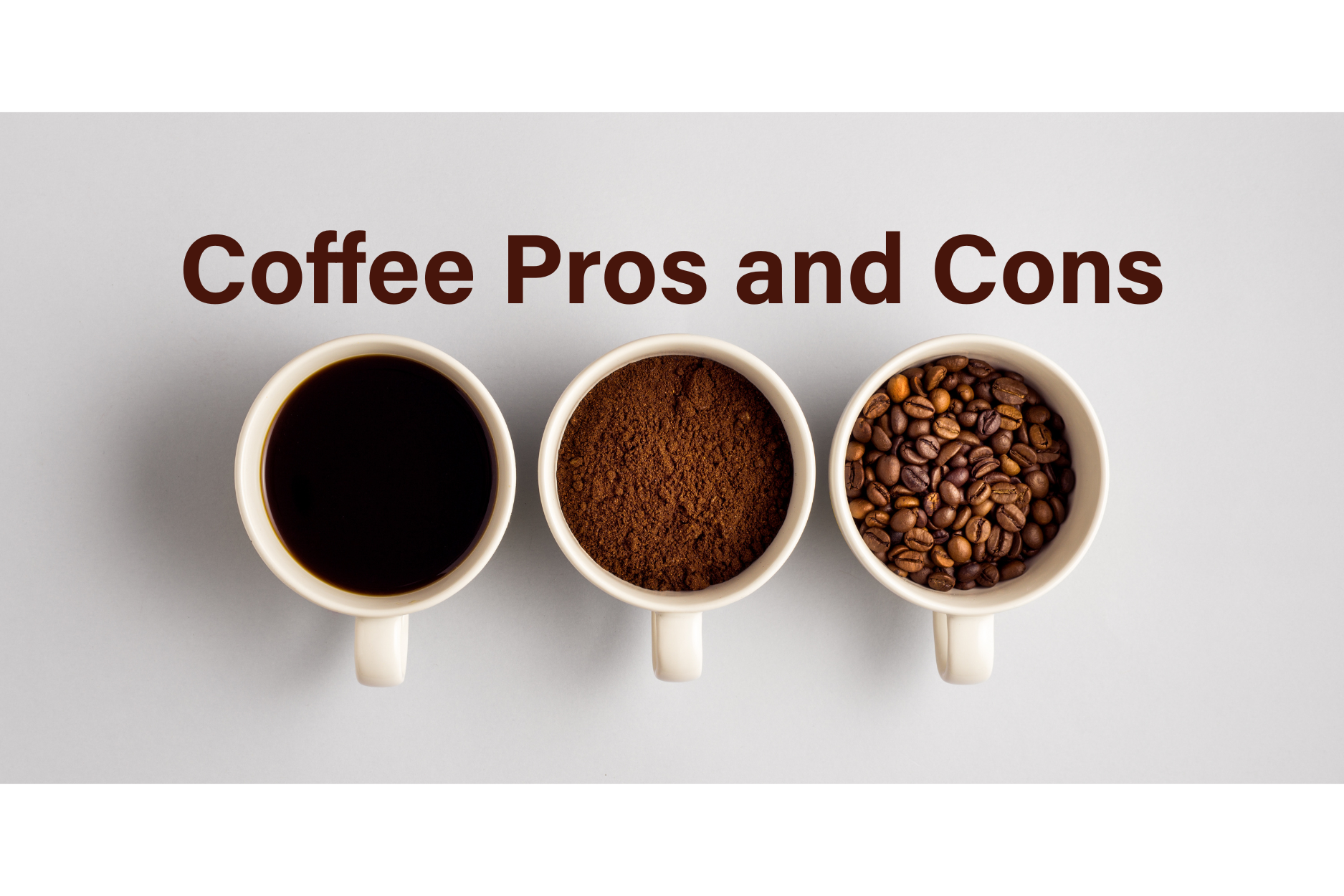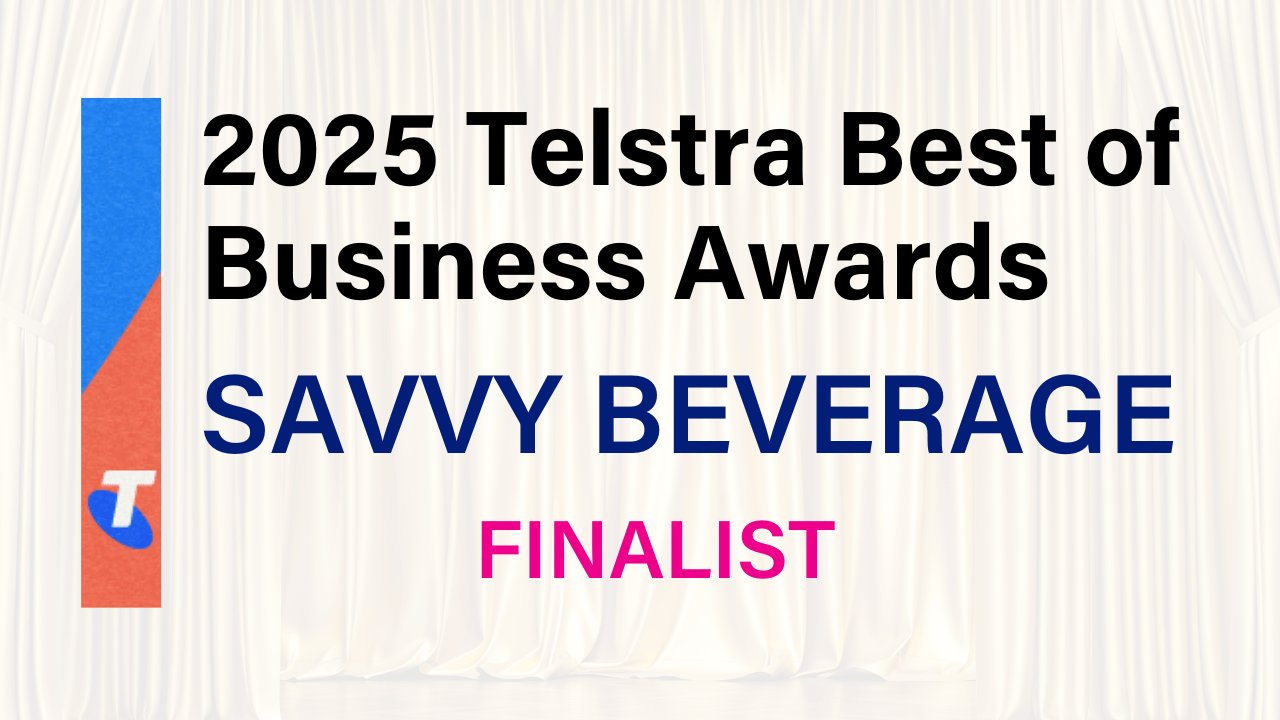
Coffee and Caffeine: The Pros, Cons, and Smarter Alternatives for Energy
But First… Coffee!
It is Sunday night. You have set your alarm for 6:30am, promising yourself that this week will be different. A productive start, no snooze button, no procrastination. But then morning hits. The first thought that pops into your mind is not your to-do list, it is coffee.
More than just a want, coffee feels like a need. The morning ritual of “I need a coffee” is practically hardwired into modern life. But here is the kicker: for many of us, that need does not stop at 6:30am. Suddenly, it is 9am, then lunchtime, then 3pm, and before you know it, you are ordering one last pick-me-up at 5pm just to push through emails and deadlines.
So here is the big question: should one drink really be the sole driver of our productivity and energy every single day?
A Cup of Caffeine, Please

The secret behind coffee’s magic is caffeine, the world’s most widely consumed psychoactive substance.
How caffeine works in simple terms:
-
It blocks adenosine, a neurotransmitter that tells your brain to relax.
-
It increases neuron firing, which creates a boost of alertness.
-
It stimulates the release of dopamine, the chemical that helps you feel good.
Sounds like a miracle, right? In many ways, it is. Caffeine can sharpen focus and keep you awake during those meetings that feel endless. It is the reason coffee has been part of workplaces, cafes, and cultures for centuries. But there is another side to the story.
Too much caffeine can bring problems like:
-
Stress and anxiety, sometimes leading to shaky hands.
-
Headaches and restlessness.
-
Rapid heartbeat and palpitations.
-
Mood swings and irritability.
-
The dreaded caffeine crash where concentration disappears in minutes.
Coffee often feels like a short-term loan of energy. You get the buzz upfront, but eventually the bill comes due in the form of fatigue or restlessness.
Why We Believe Coffee Makes Us More Productive

Most of us have convinced ourselves that coffee equals productivity. A flat white before the big meeting. A long black to get through the spreadsheet. A cappuccino to fuel creativity mid-afternoon.
To be fair, sometimes it really does help. A caffeine boost can transform a sluggish day into a more productive one. But if mental performance, mood, and focus are so important to success, should a five-dollar latte really be the main tool we rely on?
Here is something many forget: coffee might keep you awake, but it offers little nutritional support. There are no meaningful vitamins, minerals, or long-term brain benefits in a cup of standard coffee. It is essentially caffeine and water, with a splash of milk or sugar if you prefer.
The Pros of Coffee (Because We Still Love It)

Let us be fair to coffee. It is not all bad news, and in moderation it does come with some interesting benefits.
Some of the perks of coffee and caffeine include:
-
Boosted alertness and focus. That sharp, awake feeling is real.[1]
-
Improved physical performance. Many athletes rely on caffeine as an aid during training or competition.[2]
-
Disease protection potential. Studies have linked moderate coffee intake with a reduced risk of Parkinson’s and Alzheimer’s.[3]
-
Antioxidant support. Coffee happens to be one of the biggest sources of dietary antioxidants in modern diets.[4]
-
Social connection. “Let’s grab a coffee” is more than a phrase, it is a cultural ritual of bonding and conversation.[5]
So yes, coffee has its place. It is enjoyable, comforting, and even beneficial when consumed sensibly.
The Cons of Coffee (The Things No One Likes to Admit)

The problems arise when coffee goes from being an occasional ritual to an everyday survival tool. That is when the balance tips.
Drawbacks of too much coffee include:
-
Jitters and anxiety. Caffeine overstimulates your nervous system and can make you restless.[6]
-
Disrupted sleep. Even one afternoon cup can affect your deep sleep quality at night.[7]
-
Dependency. Regular drinkers often find they need more caffeine to feel the same effect.[8]
-
Digestive discomfort. For some, coffee irritates the stomach or triggers reflux.[9]
-
Mood crashes. The high-energy morning buzz often flips into a cranky slump by mid-afternoon.[10]
The truth is simple: coffee works for a while, but it is not a long-term energy strategy.
So, What About Another Way?
If we do not rely on a single food to fuel our bodies, why do we expect one single drink to fuel our brains?
Imagine instead fuelling your body and mind with ingredients designed not just to wake you up but also to support focus, mood, and steady energy across the whole day. That is where nootropic blends and functional coffees step in. These smarter options go beyond caffeine to deliver balanced performance support.
Introducing Savvy Super Coffee

Savvy Nootropic Focus Coffee is not your average flat white. It is coffee upgraded with nootropics, superfoods, and vitamins.
Instead of providing just a caffeine spike followed by a crash, Savvy Nootropic Focus Coffee is built to support:
-
Steady energy without jitters. A smooth lift instead of a sharp spike.
-
Enhanced focus for work, study, or creative projects.
-
Mood balance thanks to calming adaptogens and amino acids.
-
Nutrient-dense brain fuel from vitamins, minerals, and botanicals.
This is a holistic approach. It boosts productivity while also helping to reduce stress and anxiety. And unlike traditional coffee, it works better the longer you take it, building long-term cognitive support.
You can still enjoy your cappuccino for taste, but if you are looking for benefits, your brain deserves more than just caffeine.
Smarter Choices for Smarter Brains
The world is changing quickly. We expect more from our bodies and minds than ever before, whether it is meeting work deadlines, excelling in study, or managing the many challenges of everyday life.
Coffee has been the go-to productivity partner for centuries, but now smarter, cleaner, and more effective energy options exist. Your attention span, creativity, and mental clarity are worth more than a takeaway latte.
Maybe it is time to upgrade.
Key Takeaways
- Coffee gives a quick boost but can also cause jitters, anxiety, and crashes.
- In moderation, coffee has real benefits like antioxidants and alertness support.
- Relying only on coffee is not a sustainable brain strategy.
- Nootropic coffee alternatives such as Savvy Super Coffee provide energy plus long-term brain benefits.
- Your brain deserves more than just caffeine.
TL;DR (Too Long, Didn’t Read Summary)
Australians love their coffee. It powers mornings, meetings, and everything in between. But while caffeine offers a quick burst of focus and energy, it also brings side effects such as jitters, disrupted sleep, dependency, and the familiar 3pm crash. Coffee in moderation is not unhealthy, and it even provides antioxidants. But relying on it as your only productivity tool is like expecting one ingredient to cover all your nutritional needs.
That is where smarter options like Savvy Super Coffee come in. By combining caffeine with nootropics, adaptogens, vitamins, and superfoods, it delivers the same wake-up effect as coffee while also supporting calm focus, mood balance, and long-term brain health. No jitters. No crash. Just clean, steady energy designed for the demands of modern life.
You do not need to give up your daily latte, but if you want to move beyond a caffeine fix and fuel your brain for lasting performance, Savvy Super Coffee is the upgrade your mornings deserve.
References:
[1] Effects of caffeine on alertness
[2] Caffeine, Coffee and Ephedrine: Impact on Exercise Performance and Metabolism
[3] Alzheimer's disease and coffee: a quantitative review
[4] Coffee Drinking Influences Plasma Antioxidant Capacity in Humans
[5] BREWING CONNECTIONS: COFFEE, PERSONALITY AND PERCEIVED SOCIAL SUPPORT
[7] Coffee and sleep: Benefits and risks
[9] Association Between Beverage Intake and Incidence of Gastroesophageal Reflux Symptoms
[10] Effects of Coffee and Caffeine on Mood and Mood Disorders
[11] Savvy Nootropic Focus Coffee







